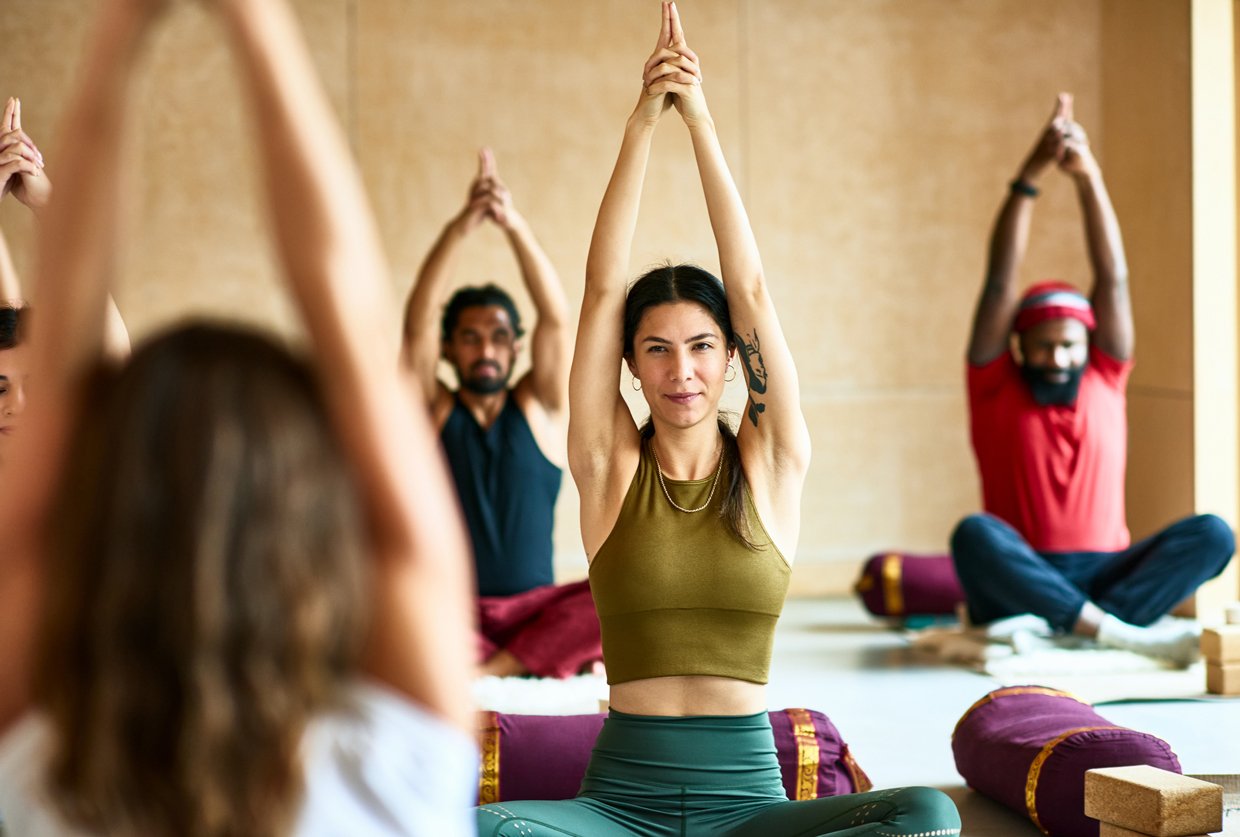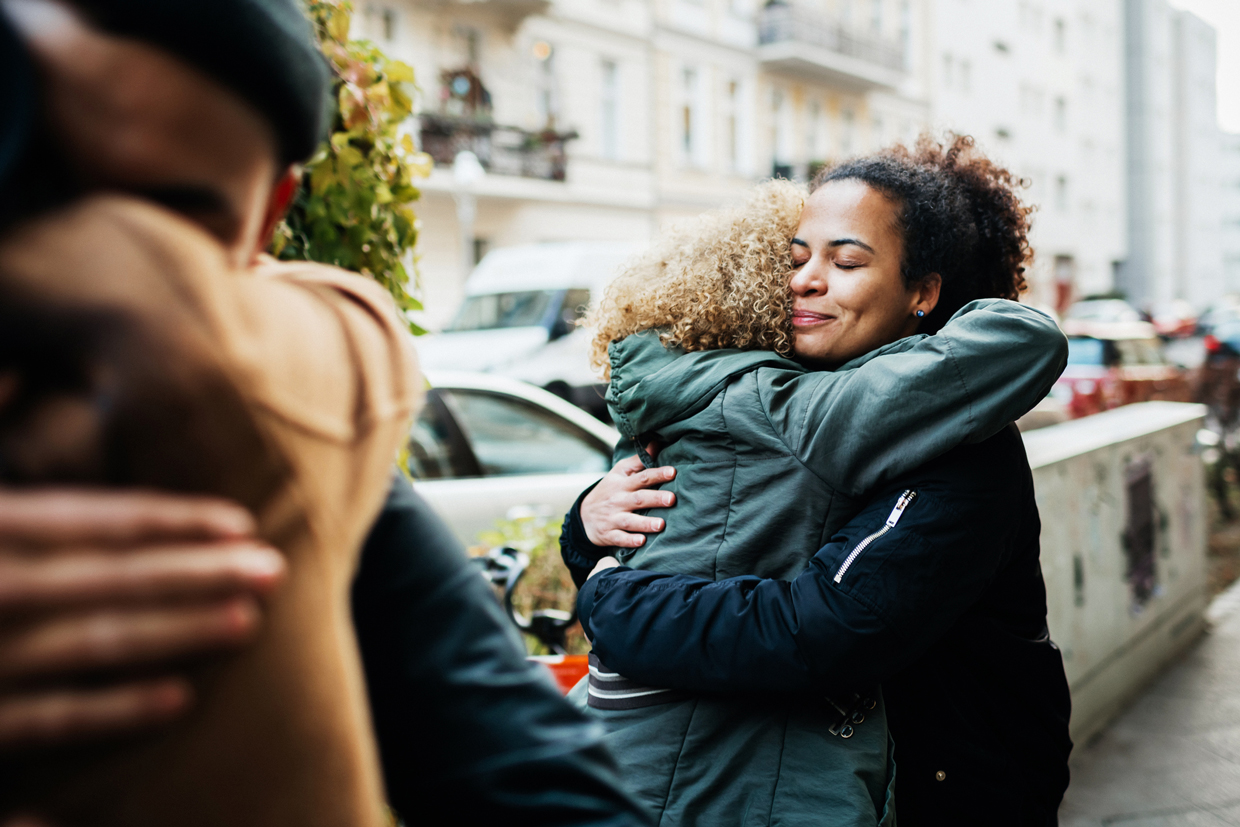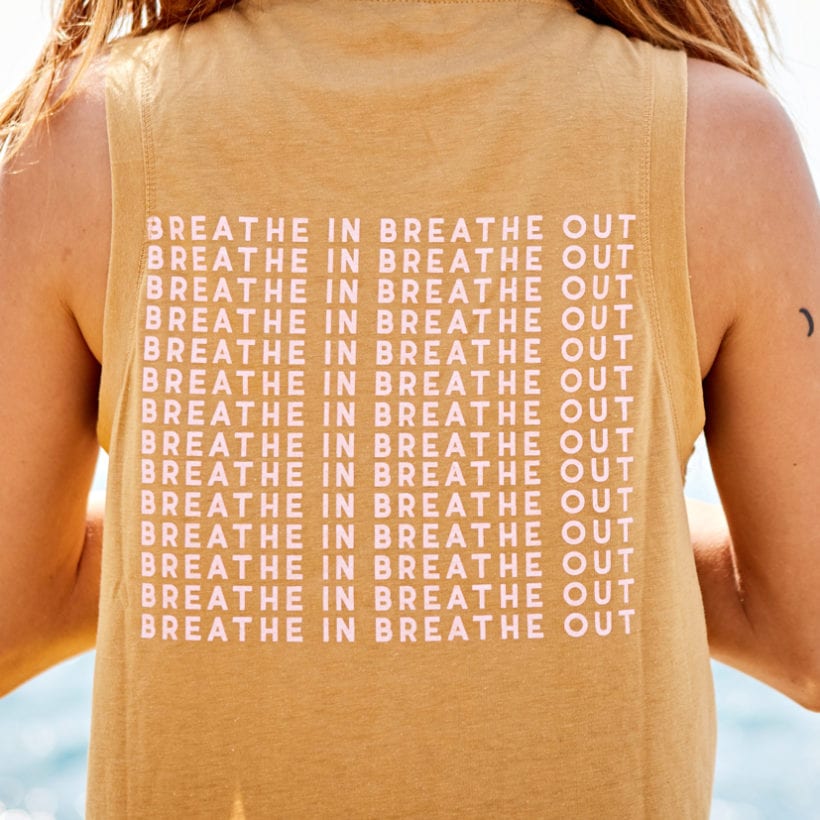Even if you feel as if the pandemic hasn’t impacted you tremendously, you may notice a new symptom as you re-enter the world: social anxiety. Though you may typically be more extroverted than inverted, after nearly two years of spending time at home and around very few people, adjusting to in-person meetings and workplaces, big gatherings, and even small parties could be jarring. After all, you’ve spent a lot of time alone, making it challenging to readjust to being in front of other people.
Social anxiety, sometimes also referred to as ‘social phobia’ is characterized by a persistent fear of being scrutinized or judged by others, explains Emma Giordano, MHC-LP at Empower Your Mind Therapy. When you feel this way, you may find it increasingly more difficult to be comfortable or relaxed around others — whether strangers or people you know. “People with social anxiety will often excessively worry about interacting with others for days or weeks leading up to a social event and can spend excessive time preparing for what to say and how to act in advance,” she continues. “These symptoms can be extremely disruptive to engaging with others and create intense distress from those affected.”
If this sounds like you, remember social anxiety doesn’t have to paralyze your life. Follow the wisdom of mental health experts to break through your psychological barriers:
Meet the Experts
Emma Giordano, MHC-LP at Empower Your Mind Therapy.
Dr. Caroline Leaf, Ph.D. is a neuroscientist, author, and entrepreneur.
Marisa Peer is the founder and creator of Rapid Transformational Therapy.
Olga Etkina is the founder of Black Swan Careers.
Amy Morin is a psychotherapist and editor-in-chief of Verywell Mind.
Dr. Dana Wang, MD is a psychiatrist in Rivia Medical.
Give yourself a break.
Here’s the hard, real truth: the pandemic has been taxing. And it has fundamentally changed many people. That’s why it’s important to reframe your thinking from ‘something is wrong with me’ to ‘something is happening in my mind, brain, and body as a response to my environment, says Dr. Caroline Leaf, Ph.D., a neuroscientist, author, and entrepreneur. As she explains, when people suffer from social anxiety and put themselves in social settings (or even think about going to a party), our body perceives this as a threat. And as a result, Dr. Leaf says more than 1,000 neurophysiological processes are set into action — including increased blood flow to the brain and increased coherence between the two sides of the brain, to help you cope.

“The limbic system, which is a part of the brain that is activated by our emotional reactions, will fire up and send signals to essentially every part of your body, letting you know that the situation may not be safe,” she continues. “This can be manifested physically as heart palpitations, sweating, foggy thinking and judgment, shaking, a loss of breath, muscle tension, dizziness, or stomach aches.”
As you can imagine, this very physical response can be exhausting and terrifying, so if you’re feeling this way, try to give yourself a break. It’s not just ‘something in your head’; it’s an imbalance within your body that is demanding your attention.
Arrive fashionably late, depart fashionably early.
To begin processing your social anxiety, take baby steps. It’s probably not a bright idea to host a birthday party for 30+ people when you’re feeling off-kilter. And you likely will feel uncomfortable if you attempt to attend a jam-packed theater performance. Instead, ease yourself into social experiences, recommends Marisa Peer, the founder and creator of Rapid Transformational Therapy. “If you’re going to a work event or you’re going to a social gathering, you can always arrive a little late and leave early,” she continues. “It limits the time in a socially acceptable way, and really often, just showing your face for an hour is enough.”

Try breathing exercises.
When you’re feeling out of your element, taking a moment to catch your breath — literally — can alleviate your stress. That’s why practicing deep breathing can be a game-changer for those suffering from social anxiety, says Olga Etkina, the founder of Black Swan Careers. “When we begin to get anxious or panic our breathing changes. Our breathing patterns become sporadic and shallow,” she continues. “One simple and effective way of grounding oneself during social anxiety is to focus on deep breaths that fill your ribcage. Focus on the air entering through your nose and your mouth. Do this for 10 seconds and see how you feel.”

Practice exposure therapy.
Because social anxiety tempts us to stay in our comfort zone, even visualizing yourself at happy hour drinks or walking through a crowded mall can send you over the edge. However, to overcome these feelings, therapists often help people face their biggest fears head-on with specific challenges, explains Amy Morin, a psychotherapist and editor-in-chief of Verywell Mind. “Someone terrified of embarrassing themselves might be challenged to go do embarrassing things in public, like wear a shirt inside out or sing loudly on the subway,” she continues. “The goal would be to learn that embarrassing yourself is actually not a big deal, and most people don’t even notice what other people are doing.”
Listen more, talk less.
When you do put yourself in social situations that perhaps aren’t as easy to handle as you’d like, it’s okay to hang back a little. What do we mean? You don’t need to be the center of attention — simply being there is helping you to work through your social anxiety. Peer says listening more and talking less may make you feel more comfortable. “Decide what you’re going to talk about. Find something interesting, read, watch the show that everyone is watching, and then you can go in and ask questions,” she says. “Remember when you’re going to an event, people actually want to talk about themselves. We have two ears and one mouth for a reason. We’re supposed to listen more and talk less. So walk into that room and find something to talk about or rather ask questions about.”
Enlist a buddy.

Before you head to an event you’re nervous about attending, ask a friend you trust to join you. Much like the buddy system in kindergarten, having one familiar person can help boost your confidence and release your tension, explains psychiatrist Dr. Dana Wang. Plus, you can practice talking to other people while having a buffer to lean on if you start to feel shaky. The goal, Dr. Wang says, is to make it through the first fifteen minutes. “Our fears are often the most intense in the beginning but then start to subside as time passes,” she continues. “Give it a chance, and who knows, you may meet another person with social anxiety, and both of you can bond over that.”







